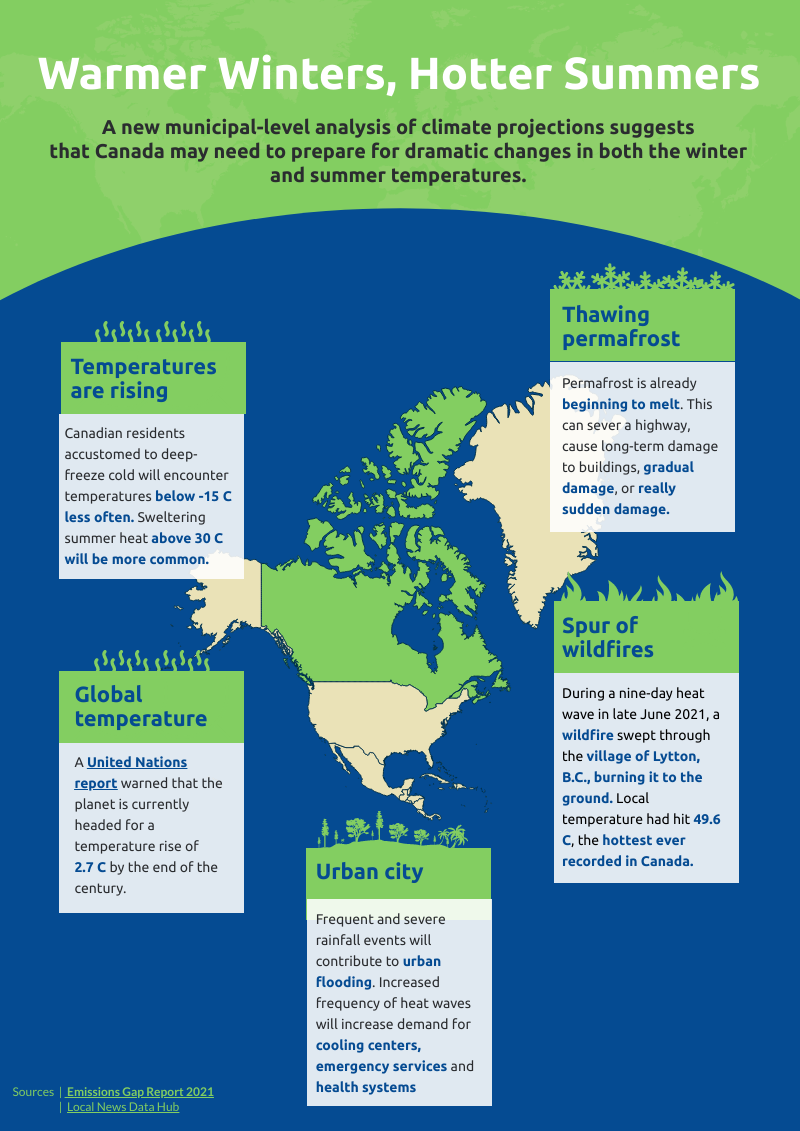climate change
Lack of consensus among global leaders may lead to climate change skepticism, expert warns
By MacKenzie Legere
As the 26th United Nation’s Conference of the Parties came to a close in Glasgow last week, many climate activists were left disappointed by its outcome despite two weeks of rallies and protests.
Swedish climate activist Greta Thunberg notably called the event a “failure”.
The annual conference offers an opportunity for world leaders to create a plan to ensure they reach the carbon emission targets outlined in the 2015 Paris Agreement.
The United Nations Emissions Gap Report 2021 predicts a global temperature rise of 2.7 C by the end of the century, 1.2 C higher than the target set out in that agreement.
These predictions do not have everyone convinced, and some skeptics took to Twitter to voice concerns that they have not personally experienced warmer weather.
The University of Oxford’s People’s Climate Vote 2021, a survey of more than 1.2 million people in 50 countries, shows that 64 per cent of respondents believe that climate change is an emergency. 59 per cent of those respondents also said everything necessary to address climate change should be done urgently.
Andrew McCammon, Executive Director of the Ontario Headwaters Institute, says that a lack of consensus among global leaders on how to tackle climate change, alongside changes to the Intergovernmental Panel on Climate Change’s (IPCC) messaging could create climate skepticism.
“And that’s a pretty valid concern,” McCammon said in a phone interview this morning. “Because there’s no significant consensus about carbon pricing or carbon taxing, or shifting to electric vehicles.”
That missing consensus globally is also present at the national level in Canada, as the interests of federal leaders clash with the interests of the private energy sector.
“We’ve had all this negative opposition… and, in some spots, gaslighting from the big fossil fuel industries that aren’t prepared to embrace change,” said McCammon. “Some leaders in the energy sector are embracing change, but some are seeking to undermine this effort on any basis they can.”
McCammon also said that climate change skeptics, climate activists, and these companies will need to work together in order to enact social transition.
“We need action plans that will address the [energy] sectors, the workers, and the communities in which those sectors have major operations, i.e. tar sands, and consumers,” concluded McCammon. “And so many environmentalists don’t seem to demonstrate any empathy for the guilty.”
Sources:
Andrew McCammon,
Executive Director of the Ontario Headwaters Institute, Etobicoke, ON
416 231 9384
COP26: Greta Thunberg calls summit “a failure and PR event”
University of Oxford’s People’s Climate Vote 2021
https://www.undp.org/content/dam/undp/library/km-qap/UNDP-Oxford-Peoples-Climate-Vote-Results.pdf
Local News Data Hub: Warmer winters, hotter summers
United Nations’ Emissions Gap Report 2021
https://www.unep.org/resources/emissions-gap-report-2021
Tweet from @ terri_1987a
Tweet from @ benschmrk
Featured image: https://www.noaa.gov/education/resource-collections/climate/climate-change-impacts

